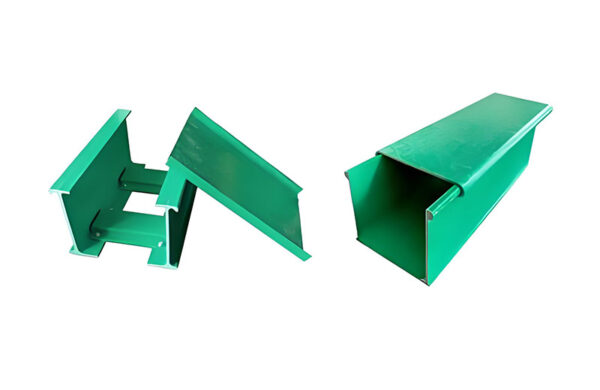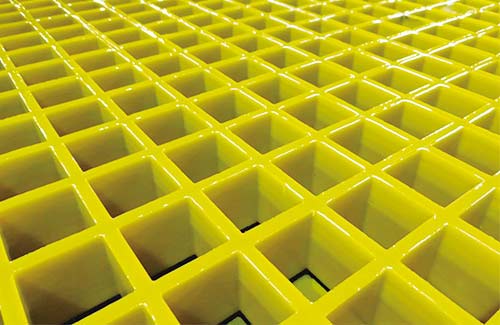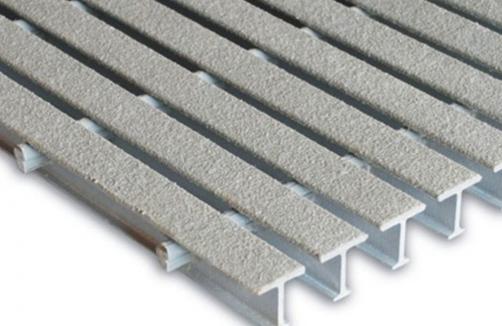FRP Grating for Industrial Flooring: The Ultimate Solution for Durability and Safety
Industrial flooring plays a critical role in maintaining safety, efficiency, and longevity in various sectors, including manufacturing, mining, oil and gas, and healthcare. Traditional materials like concrete, steel, and wood often face challenges such as corrosion, wear, and slip hazards. To address these issues, Fiber-Reinforced Polymer (FRP) grating has emerged as a superior alternative. But what exactly makes FRP grating the ultimate solution for durability and safety? Let’s explore the key benefits, potential questions, and why it’s gaining traction in industrial applications.
What Is FRP Grating and How Does It Work?

FRP grating is a composite material made from a combination of fiberglass and polymer resins, reinforced with mechanical fibers. This unique composition offers exceptional strength, corrosion resistance, and lightweight properties, making it ideal for industrial flooring. Unlike traditional materials, FRP grating doesn’t rust, corrode, or degrade over time, ensuring long-term performance even in harsh environments.
But how does it compare to other flooring options? Traditional concrete can crack and require frequent repairs, while steel grating may rust and require coatings. Wood decking, on the other hand, is prone to rot and insect damage. FRP grating, however, remains unaffected by chemicals, moisture, and extreme temperatures, making it a cost-effective and low-maintenance choice.
Key Benefits of FRP Grating for Industrial Flooring
1. Enhanced Durability
Industrial floors endure heavy loads, chemical spills, and constant foot traffic. FRP grating can withstand these challenges without losing integrity. Its high strength-to-weight ratio ensures it doesn’t sag or crack, even under heavy machinery. This durability translates to fewer repairs and lower maintenance costs over time.
2. Improved Safety Features
Slip resistance is a major concern in industrial settings. FRP grating comes in various treads and patterns, providing better grip than smooth concrete or metal surfaces. Additionally, it doesn’t conduct electricity, reducing the risk of electrical hazards in environments with exposed wiring.
3. Corrosion and Chemical Resistance
Factories, laboratories, and chemical plants require flooring that can resist harsh substances. FRP grating is impermeable to oils, acids, and alkalis, preventing stains and deterioration. This makes it perfect for applications where concrete would fail quickly.
4. Lightweight and Easy to Install
Compared to steel or concrete, FRP grating is significantly lighter, simplifying installation and reducing structural load on supports. It also doesn’t require welding or special tools, allowing for rapid deployment and cost savings.
Addressing Common Questions About FRP Grating
Q: Is FRP grating more expensive than traditional materials?
A: While the initial cost may be higher, FRP grating’s longevity and low maintenance make it a cost-effective choice in the long run. Its resistance to corrosion and damage reduces replacement needs.
Q: Can FRP grating withstand extreme temperatures?
A: Yes, FRP grating maintains its properties in both high and low-temperature environments, making it suitable for diverse industrial settings.
Q: Is it environmentally friendly?
A: FRP grating is recyclable and doesn’t contain toxic materials like asbestos or lead, aligning with sustainability goals.
Why Choose FRP Grating for Your Industrial Floor?
Investing in FRP grating offers numerous advantages, from enhanced durability and safety to long-term cost savings. Its ability to resist corrosion, heavy loads, and slip hazards makes it the ideal choice for industrial flooring. Companies that prioritize safety, efficiency, and sustainability find FRP grating to be a game-changer.
If you’re still on the fence about whether FRP grating is right for your facility, consider the long-term benefits. Fewer repairs, lower maintenance, and improved worker safety make it a compelling option.
Share This Knowledge!
If you found this information valuable, feel free to share it with colleagues or industry peers. Proper flooring isn’t just a practical necessity—it’s a critical component of a safe and productive workplace.
In conclusion, FRP grating stands out as the ultimate solution for industrial flooring, combining durability, safety, and cost-effectiveness. By choosing this innovative material, industries can ensure their facilities remain reliable and efficient for years to come.







